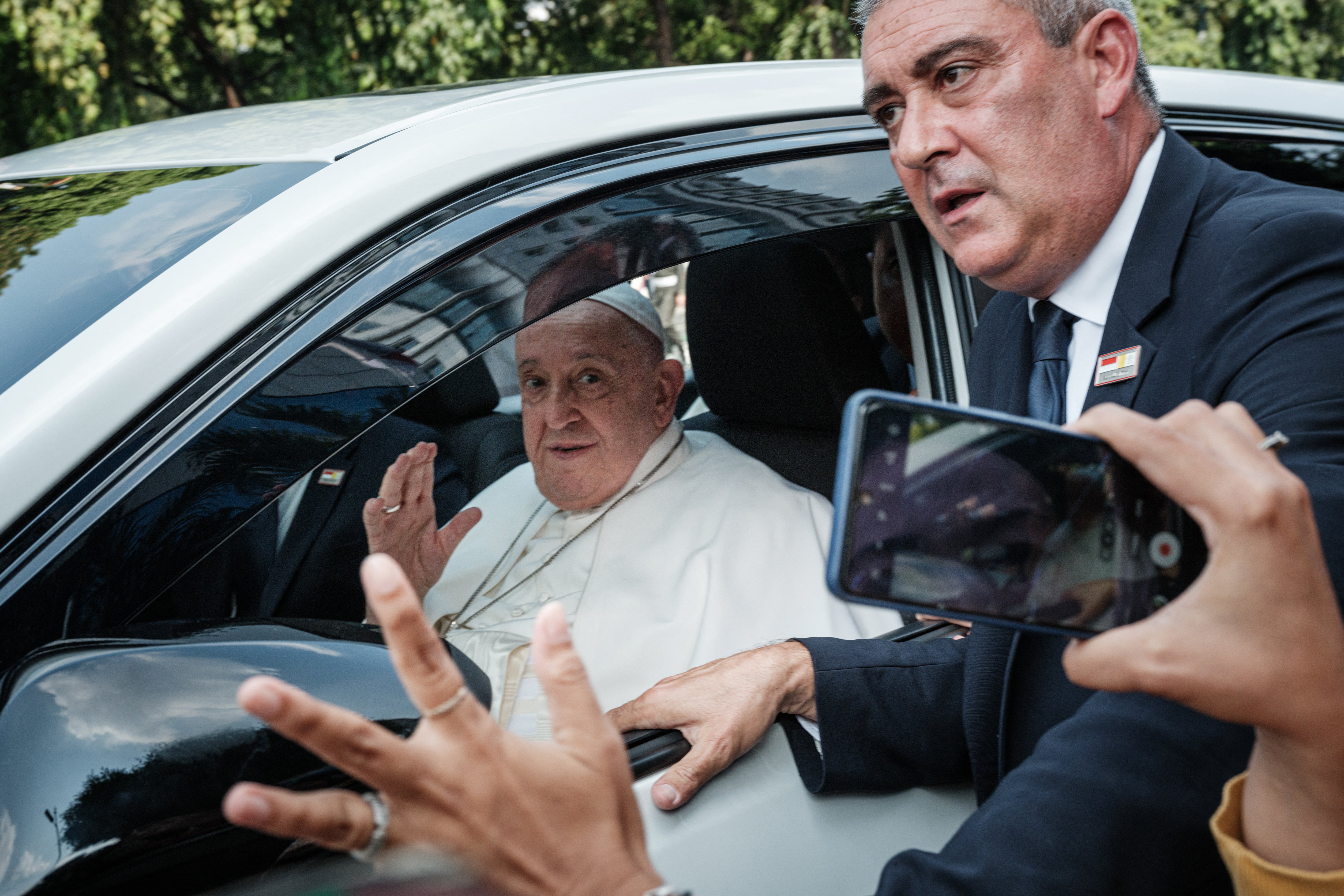Pope Francis urges end to tribal violence in Papua New Guinea as he holds mass ‘at edge of the world’
Francis visit to Papua New Guinea is part of his four-nation tour of southeast Asia and Oceania
Pope Francis has made a historic visit to the remote jungles of Papua New Guinea, holding an open-air mass “at the edge of the world” in the coastal town of Vanimo, where he addressed a crowd of 20,000 people.
In his sermon, Francis praised the church workers who spread the faith but urged the faithful to work closer to home to end tribal rivalries and violence.
The 87-year-old pontiff flew into Vanimo, a coastal town with a population of 11,000, where he met with the local Catholic community and missionaries from his native Argentina.
The Pope’s visit aimed to promote civic responsibility, cooperation, and an end to violence, including gender-based violence. He brought medicine, musical instruments, and toys to support the local population.
“You who live on this large island in the Pacific Ocean may sometimes have thought of yourselves as a far away and distant land, situated at the edge of the world,” Francis said.
“Yet today the Lord wants to draw near to you, to break down distances, to let you know that you are at the centre of his heart and that each one of you is important to him.”
Francis has prioritised the church on the “peripheries”, saying it is more important than the centre of the institutional church. He has shunned trips to European capitals, preferring far-flung communities where Catholics are often a minority.
The remote city of Vanimo, located near Papua New Guinea’s border with Indonesia, is known as a surfing destination.
As Pope Francis arrived at the Vanimo Cathedral, a sea of approximately 20,000 people erupted in song and dance on the field outside.
In a symbolic gesture, Pope Francis donned a colourful feathered headdress presented to him by local officials, embracing the rich cultural heritage of Papua New Guinea.
The event took on a distinct Argentine flavour, with a statue of the Virgin of Lujan, a revered figure in Catholicism, particularly in Argentina, prominently displayed on stage. Following the public celebration, Pope Francis met privately with nuns and missionary priests, where he was treated to a traditional Argentine tea, maté.
Father Martin Prado, an Argentine missionary credited with having invited Francis to visit Vanimo, said the Pope has a big heart for people and is not just words, he does what he says.

Francis’s visit to Papua New Guinea is part of his four-nation tour of southeast Asia and Oceania. He will next visit East Timor and Singapore before returning to Rome on 13 September. The Pope’s longest overseas trip is aimed at promoting peace, understanding, and the Catholic faith in the region.
In Papua New Guinea, more than 90 per cent of 12 million residents call themselves Christian, but the religion sits alongside a panoply of local beliefs, customs, and rites, while about a quarter of Papua New Guineans are Catholic.
Francis heard first hand about how women are often falsely accused of witchcraft and then shunned by their families. He urged church leaders to be particularly close to these people on the margins who have been wounded by “prejudice and superstition”.
The country has become a major target of international companies for its gas, gold, and other reserves. In a speech to its political authorities on Saturday, Francis called for better treatment of its workers and appealed for an end to a spate of ethnic violence that has killed dozens in recent months.
Before heading to Vanimo, Francis celebrated a mass on Sunday with about 35,000 people at a sports venue in Port Moresby, the nation’s capital. He told the local populace that while they may think they live in “a far away and distant land”, God is near to them.
The Pope’s visit to Papua New Guinea has been seen as a significant event, with many locals gathering to catch a glimpse of the pontiff. Some had gathered from the early hours to make sure they could take part in morning mass.
“You hear the word ‘faithful’. At two o’clock in the morning, people were lining up outside the gate, you know that they are faithful,” Jonathan Kassman, an official involved in hosting the event, said.
Bernard Soari, who travelled from one of Papua New Guinea’s more remote islands to the capital, said the Pope’s remarks brought “an ocean of feelings”.
“It strengthens our faith to understand the meaning of love and respect for one another. We are honoured to have the Pope visiting our land,” said the 48-year-old.
Join our commenting forum
Join thought-provoking conversations, follow other Independent readers and see their replies
0Comments